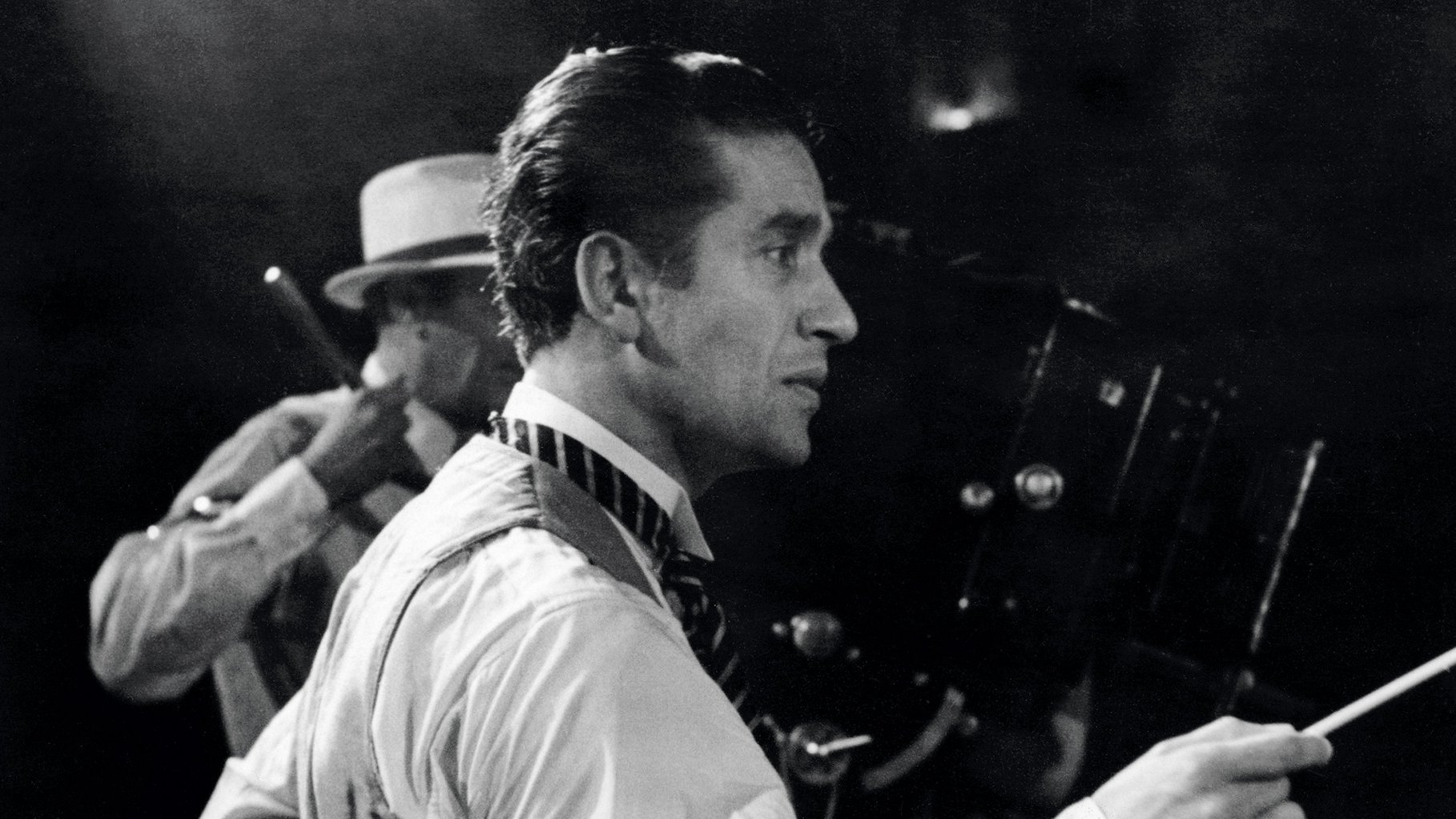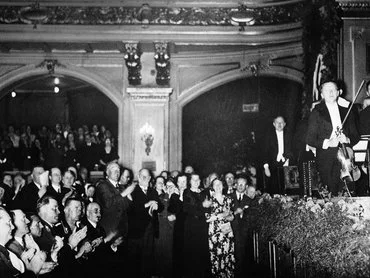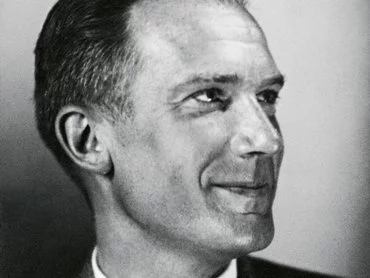- History
- Orchestra History

Sergiu Celibidache’s association with the Berliner Philharmoniker began on 29 August 1945, during one of the most tragic moments in the orchestra’s history: The orchestra’s ancestral home, the concert hall in Bernburger Straße had been reduced to rubble by bombs, its chief conductor, Wilhelm Furtwängler, was not allowed to conduct while awaiting denazification, and its interim conductor Leo Borchard had been accidentally shot by an American sentry a few days earlier.
The orphaned orchestra was desperately looking for a conductor who could take over concerts which had already been organised. None of the great conductors was available and so a young, unknown college student who had just won the Berlin radio orchestra’s conducting competition got his big chance: Sergiu Celibidache. The then 33-year-old Romanian, a student of Heinz Tiessen and Walter Gmeindl and a great admirer of Furtwängler, may have lacked experience, but he made up for it in talent, ambition and charisma.
Temperamental genius
For his inaugural concert, he conducted Rossini’s Overture to the Barber of Seville, Weber’s Bassoon Concerto with the Philharmoniker’s principal bassoonist Oskar Rothensteiner as the soloist, and Antonin Dvorak’s Symphony From the New World. It was the beginning of an intensive, fruitful partnership. With dedication and ambition, Celibidache steered the orchestra through the difficult postwar period and in doing so, laid the foundations of his own career.
The Philharmoniker and the conductor performed in a range of very different locations in Berlin: the Titania-Palast in Steglitz, the Hockey Club in Dahlem, the city’s opera house and the broadcasting hall in the Haus des Rundfunks, where they gave concerts for the Allied troops and local audiences. They also toured together. The newcomer, who was also ridiculed by the press because of his eccentric, mannered conducting style, covered a wide repertoire with the orchestra: Haydn, Mozart, Beethoven, Brahms, Tchaikovsky, Mendelssohn, Wagner, plus French and Russian composers. For example, in December 1946, Celibidache conducted the German premiere of Dmitri Shostakovich’s Seventh Symphony, known as the Leningrad.
Alienation
However, the relationship between orchestra and conductor was not free from conflict. Celibidache’s uncompromising, demanding rehearsals and his often despotic nature did not go down well with the older orchestral musicians in particular. Added to that, Wilhelm Furtwängler, who the Romanian had substituted, returned to the desk of the Philharmoniker in 1947 following denazification, and reassumed the position of chief conductor in 1952, while Celibidache was receiving an increasing number of invitations abroad. The number of his concerts in Berlin declined significantly.
In November 1954, he gave his last concert with the Philharmoniker for a long time. He conducted Brahms’ Requiem, whose interpretation – as the press attested – differed “considerably from all conventional approaches”, and a programme of works by Maurice Ravel, Heinz Tiessen and Béla Bartók. Just one day after his last concert, Wilhelm Furtwängler died. Despite his brilliant, compelling performances, the discord between orchestra and conductor turned out to be so great that not he, but Herbert von Karajan was chosen to succeed Furtwängler. Feeling slighted, Celibidache withdrew and rejected every offer of further collaboration.
Triumphant return
It took 38 years before he would make his comeback with the orchestra: In 1992, the then German President Richard von Weizsacker invited the conductor to conduct two benefit concerts in aid of children’s homes in Romania. Celibidache, now head of the Munich Philharmonic, programmed Bruckner’s Seventh Symphony, the only work by the Austrian composer the conductor had performed with the Philharmoniker in the early years. Celibidache had stipulated twice as many rehearsals as usual for the two special concerts which are among the great moments of the orchestra’s history.
In the film The Triumphant Return which documents the rehearsals for this concert, Celibidache acknowledges the “determining role” the Berliner Philharmoniker played in his life. It was here that he was able to make his first “human and musical experiences”. The documentary and the recording of the benefit concert of 31 March 1992 are available in the concert archive of the Digital Concert Hall.

